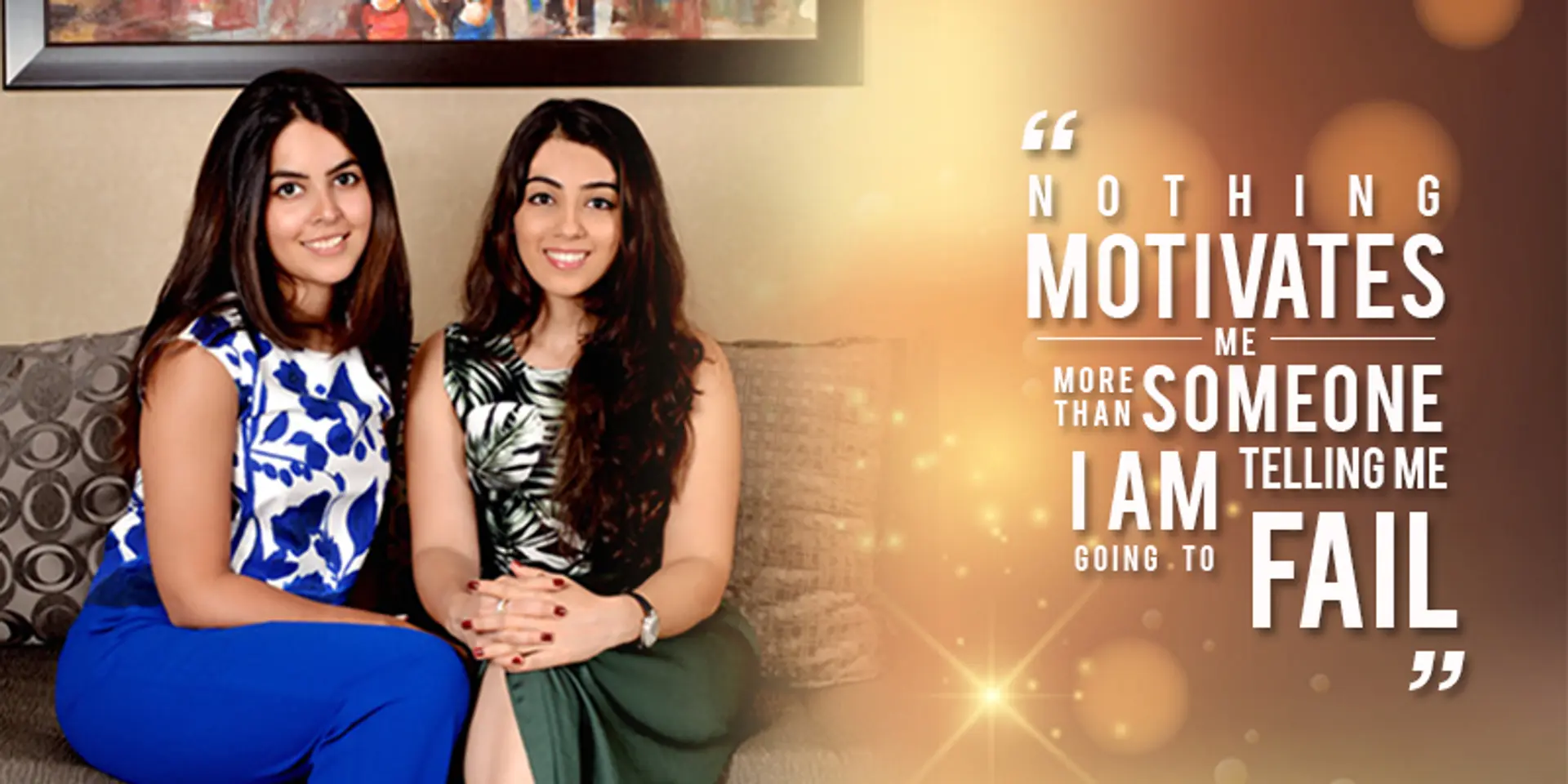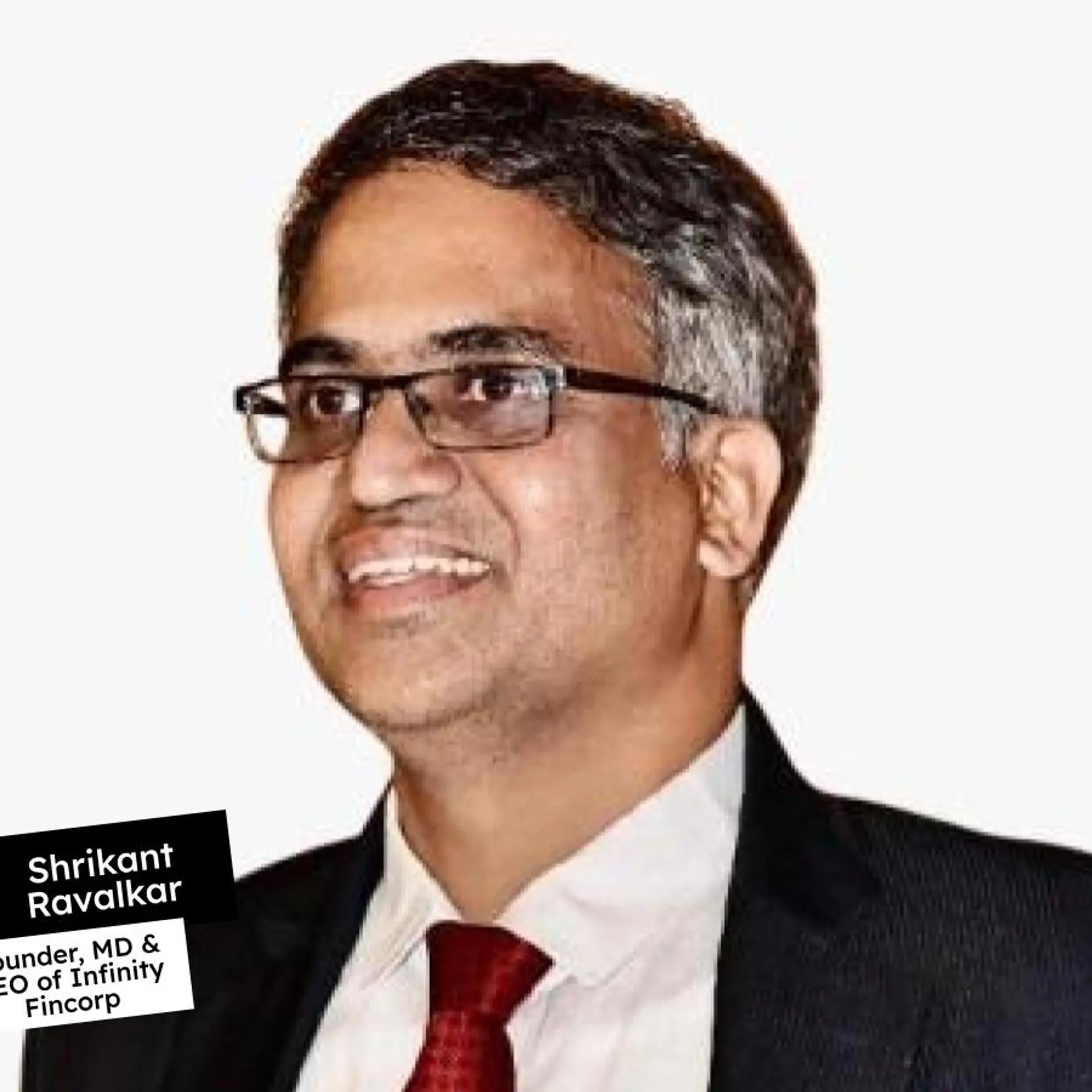How best friends turned co-founders are building their dream business
“We didn’t set out to become entrepreneurs. We simply noticed a gap in the market, addressed a category we were passionate about, and chose to fill the gap ourselves. The entrepreneurial bit was simply an outcome of a desire to bring back the art of the handwritten note and provide good quality stationery to like-minded patrons in India,” says Sanaa Jhurani, Co-founder of The Papier Project. Sanaa, and her partner in crime Ayesha Wadhawan, founded the Mumbai-based stationery startup because the self-confessed stationery addicts couldn’t find what they were looking for in the city. “One thing led to another and we decided that if there was anyone who could bring this stationery enterprise to India, it was us,” says Sanaa.
Colleagues to best friends to co-founders
Ayesha and Sanaa met at their previous place of work, Heel&Buckle, ‘and it all pretty much took off from there.’ Ayesha handled e-commerce while Sanaa handled PR and marketing. “We were, as they say, a match made in heaven. Colleagues to lunch partners to best friends, and now business partners,” writes Sanaa.
The Papier Project
Ayesha and Sanaa envision The Papier Project to grow into a serious stationery enterprise that is easy to access – one that has a young, vibrant, and internationally influenced design aesthetic. Papier means paper in French. Sanaa explains, “There’s a certain romantic sensibility associated with a charming Parisian afternoon, an indescribable emotive response that has you going weak in the knees with the wistful charm of a bygone era that was dotted with letters of love, post cards from fondly remembered holidays, the yellowed pages of a favourite novel, or even a fading photograph.
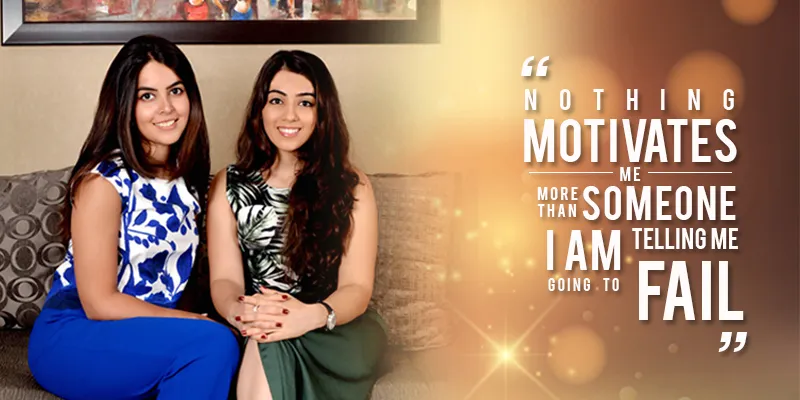
The Papier Project was founded as an ode to this emotive response, an ode that was meant to encapsulate the beauty of the written word and the sheer magic of being able to pen down our thoughts, of the possibility of creating and leaving a legacy, an imprint – one that stands the test of time and serves as tactile proof of our feelings.”
Sanaa and Ayesha designed the offerings of The Papier Project to be an amalgamation of the bold novelty of modern contemporary design and the traditional simplicity of classic styles. The two ladies are avid travellers and their visual philosophies are almost entirely influenced by their travels abroad. Sanaa says, “If we aren’t travelling ourselves, our voracious appetite for reading, a vast majority of which is satiated by romance novels, is inspiration enough to ensure that we are constantly bringing something new to the design board. A lot of our design work is a reflection of our personalities, our personal preferences and our individual interpretations of the myriad influences we encounter in our daily lives. Most of our customers see the design, but only we see each piece of art as a tiny bit of our soul.”
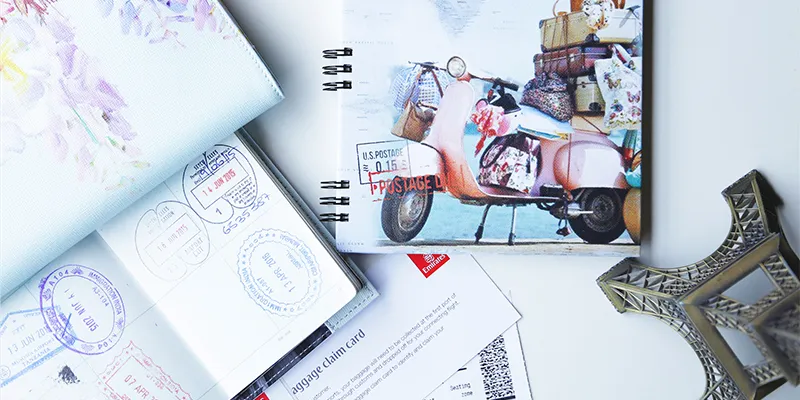
The Papier Project employs a three-pronged approach. “One arm of the business is our manufacturing and designing wing – where we produce a whole range of products under The Papier Project label. These products are then retailed through our own e-commerce portal, through our retail store at the new domestic terminal at T2 Chhatrapti Shivaji International Airport, Mumbai, and through other third-party portals.
The other arm of the business is our customisation studio where we work with clients to create complete custom stationery solutions to complement their requirements. Most of the clients we meet typically look for these custom sets to gift to newly married couples or specific sets for their children.
Finally, the third arm of our business model is associated with an endeavour to promote our portal as a one-stop-shop for all things stationery. We are moving towards an aggregators model, where we will host other stationery brands alongside our own homegrown label, so that a client can essentially be presented with the opportunity to peruse all the various options at their disposal by visiting our portal,” Sanaa offers.
Growth
Founded in 2015, The Papier Project is a bootstrapped venture that is hoping to break even through ambitious offerings in its immediate future. “We're looking to expand into multiple physical retail and product variants. We want to make The Papier Project more available to our customers and also host other budding indie brands that match our design aesthetic. Eventually, the goal is that when a customer thinks of good-quality stationery they immediately think The Papier Project,” says Sanaa.
They haven’t put a number on the customer base, but say the response has been favourable. “In the initial few weeks after our launch, a lot of the sales that came in were primarily from friends and family or personal referrals. The first time a complete stranger took a gamble on us – and kept coming back to us for more – we knew we were doing something right,” Sanaa exclaims. The biggest landmark was a complete surprise for them. She explains, “We had customised a wedding planner with the name ‘Bipasha’ – and a few days later we read about it in the news – which is when we realised that this was for Bipasha Basu!”
The Papier Project is on a three-year timeline to break even and so far, Sanaa confirms, they are on schedule.
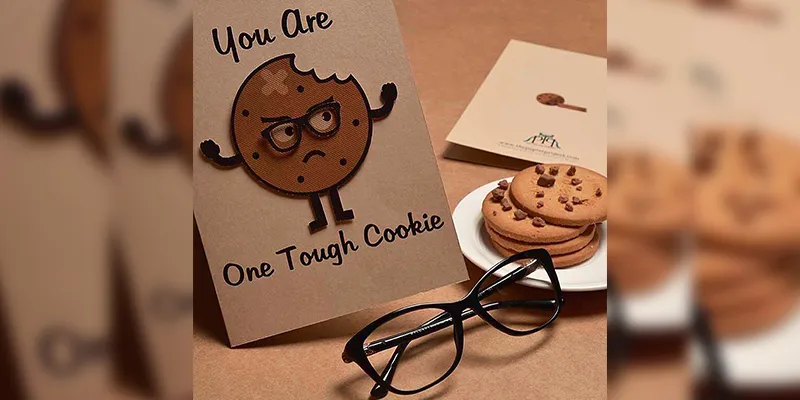
The Papier Project’s bestselling product is their range of greeting cards. Sanaa is not surprised. She says, “We firmly believed that sterile texts/WhatsApp messages/emails simply could not match up to something so beautiful.”
The challenges of going in blind
Sanaa is the first to admit they didn’t have a clue as to what they were doing when starting up. While creating beautiful stationery was their forte, backing up that dream with technical knowledge and analytical foundation has been hard on the duo. She says, “Rewinding a few months, a lot of these challenges were frighteningly daunting. When it came to setting up our website, the back-end system that we’d operate on, designing our customer interface, ensuring easy navigation, and the myriad technical details that needed to be addressed, we found ourselves in over our heads. We had to blindly rely on the expertise of another team of people and trust the fact that they’d deal with this as thoroughly and as succinctly as we would have ourselves. It’s hard to just trust someone and go in blindly, especially when you have so much riding on the outcome of this decision, and you have no concrete parameter to help make this judgement.”
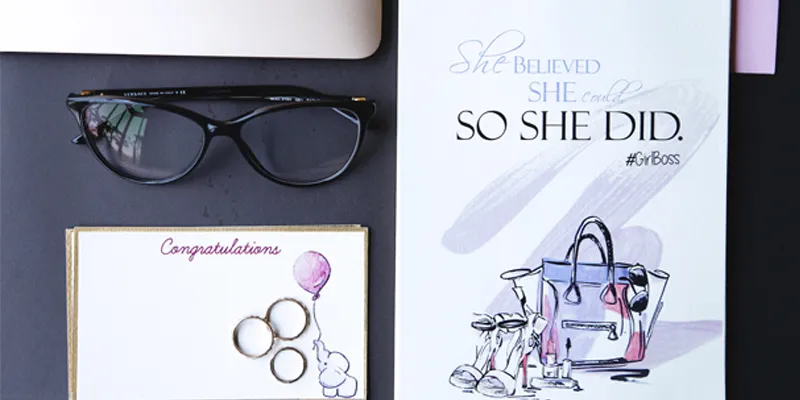
Since then, the two have relied on their past mistakes to make better decisions about the future. And while these challenges have become less fearsome with time, others are not so easily vanquished. “A major struggle continuing to plague our operations is the need to find good-quality vendors, who are as committed to running a sustainable enterprise that minimises wastage without compromising on the quality of the finished product,” Sanaa rues.
Best moments
Sanaa recently experienced a celebrity moment. “Just the other day I was at a friend’s wedding function and a random stranger came up to me and asked me if I was ‘The Papier Project.’ To be recognised and referred to as our dream is a milestone moment that we aren’t going to forget anytime soon. I had to come back and tell Ayesha that it really isn’t in our heads, there are actual people who follow our work, and there are patrons who are joining our movement to speak through paper. In that one moment, everything became real.”
Why ‘You’re going to fail’ is the best advice ever
While Sanaa admits that there are plenty of people in her and Aayesha’s lives who believe in them and have faith that The Papier Project is going to be a success, it’s the naysayers who have done them a special favour. “The best advice we’ve ever received?” Sana says. “To quit.”
Very early in our journey, when we were still struggling to find our feet, we had a very dear family member tell us that this idea was destined for failure. They believed, like a number of other people, that in an age that is dominated by the advent of technology, a venture such as ours will struggle to meet patrons who feel as strongly for the cause. Nothing can motivate me more than someone telling me that I’m going to fail. Their lack of belief in our dream and in our abilities to make this work was all that we needed to make sure we did everything in our power to prove them wrong. I sure hope we’re a lot closer to doing that today than we were back then.”
Sanaa’s own advice to her fellow dreamers is far less cynical. She says, “Don’t overthink it. As soon as you manage to zero in on what you’d like to do, jump in with all that you’ve got and don’t look back. Once you’re in it, you don’t have a choice but to give it your all and to do everything that it takes to make it work. Believe in the magic of new beginnings and have faith in your abilities to make it work.”


